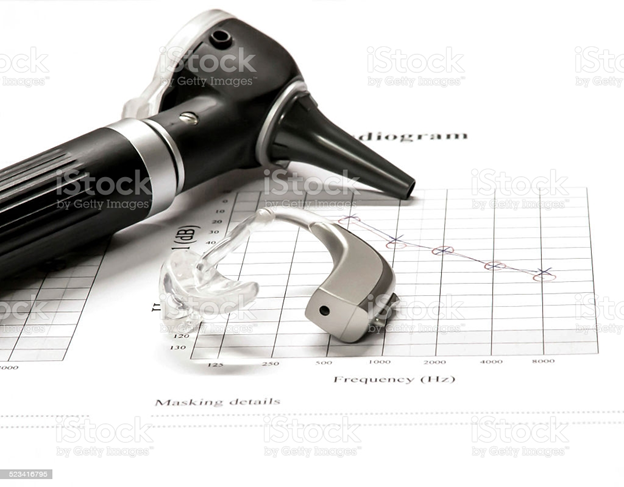Five Ways on How To Bridge the Challenges in Audiometry
People are often ignorant about audiometry. They ignore signs – however much they are precise- that might indicate they are experiencing hearing loss. It takes confidence and firm decision making to head to the audiologist to get a solution.
People experiencing hearing loss, however, do not have it smooth. They experience challenges in their quest for help. There have been significant efforts through technology, the government, communities, and support systems to alleviate the problems they face. Each entity has its key input in audiometry, and the results are quite visible. Advancements in technology have helped in modifying and illuminating the performance of hearing aids.
Getting the Necessary Help
Identifying the signs of hearing loss and seeing a credited audiologist is the first step to getting the solution. It is difficult to self-diagnose yourself if you are experiencing hearing loss. Book an appointment with the audiologist to get the hearing tests. The audiologists will discuss the causes, effects, and prevention measures you need to take. They will refer you to the ENT specialist or a neurosurgeon to determine which course of action to take.
Purchasing the Hearing Aids
Hearing aids, though essential for any person who experiences hearing loss, is quite expensive. Its price in the market ranges from $1000 to $4000. The price differs with the number of modifications and technology and the nature of hearing loss experienced.
Some insurance covers exempt the dental and ENT expenses, hence leaving the financial burden left for the individual. There have been efforts to introduce tax credits to lighten the burden of buying and maintaining hearing aids; there has not been a legislation breakthrough. However, you can get allowable deductions on consultation fees and treatment plans (including the purchase of hearing aids).
Adaptation to the Hearing Aids
Once you have purchased the hearing aids, you need to acclimatize to the new equipment. There are common hearing aid features that provide ease and quality performance. They modify traits such as feedback interference, noise selection, and amplification. These features are pre-installed and preprogrammed to reduce the amount of time and effort you need to grasp their functionality.
You can also learn how to manually adjust the volume, pitch, and clarity of the sound signals received. You can consult the audiologist or otorhinolaryngologist for further instructions on how best to care for your hearing aids: the types of rechargeable batteries and controls to use. The adjustment controls vary according to hearing aid type: remote or physical controls, wireless and Bluetooth connectivity. Mobile phones use specifically developed apps to enhance the efficiency of aids. Physical devices such as cords can be connected directly to the inputs to improve the clarity of sound received.
It would be best to visit various surroundings that will ‘tune’ the hearing aids to fit your needs. Different environments have different levels of background noise; therefore, the hearing aid will ‘learn’ the surrounding by triggering the loaded programs.
As reliable as the technology behind them is becoming, hearing aids are still fairly delicate pieces of hardware, as well. When adjusting them isn’t helping, or they’re having clear malfunctions, you should look for a hearing aid repair provider in your area. Hearing health specialists tend to have some ability to repair most minor issues themselves and, if not, can provide you with a temporary replacement while sending it off to the manufacturer.
Social Support
Support from family and friends plays a significant role in ensuring a smooth transition in this journey. The love and support create a warm and accepting environment. It motivates you to be yourself and accept the journey.
It is also necessary to watch your mental health during the consultation and treatment process. Do not assume or brush over your feelings about your situation. Book an appointment with a psychologist or share your process with a trusted friend to ensure you are healthy mentally. You can also find a support group to join where you will share experiences and learn from each other.
Have a Thirst for Knowledge
Researching enables you to get more knowledge about hearing aids. You can learn a lot through the internet about audiometry. With this knowledge and doctor’s consent, you can learn how to manipulate the hearing aids to perform better. You can also learn new practices that will assist you in taking charge of your hearing. This will boost your confidence and self-esteem. It will also help you assist other people to overcome their fears as a way of giving back. It links and strengthens the bond you have to the society.
It is essential to follow the above steps to take good care of your hearing. It is a tedious and involving journey that eases with the right help. Ensure you focus on the positives, involve accredited personnel, and follow all the experts’ instructions. Learn continuously to increase your scope of knowledge. Always remember to keep your mental and physical health first.
Be vigilant and take charge of your hearing! You can do it!
- Navigating Pregnancy as a Teen: Tips for a Healthy and Happy Journey - July 23, 2025
- What Does It Take to Start the Best Possible Relationship With Your New Dog? - July 23, 2025
- You Deserve To Take Care Of Yourself And Your Needs - July 20, 2025


